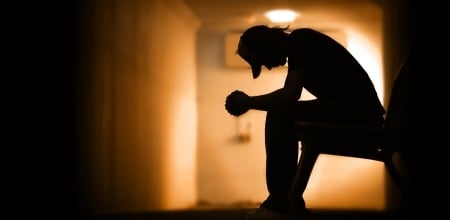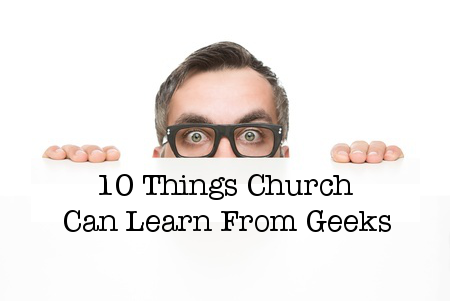
I’m re-publishing this sermon precisely because of the brilliant insight I mentioned. David was kind enough to share an early copy of his short-story with me and I complimented him on his clever wordplay with “rainbow” and “bow,” to which he replied he wasn’t so sure it was a play on words. So, I decided to head straight for the origional Hebrew text. Much to my surprise, and ultimately my delight, I found that David was right on the mark (if you’ll pardon the pun). I knew then that I had to pull out one of my own perosnal favorite sermons and do a bit of editing to reflect this new insight. I’ve also updated it to reflect recent struggles in LGBT rights. You’ll find both a downloadable pdf and an audio recording of this piece at the bottom of the post. So, without further adieu, I give you:
Building Arks. Surviving Floods. Rainbow Promises.
rain. Lucy says, “If it doesn’t stop raining everything will be washed away.”
“Oh no!” says Linus. “Genesis chapter 9 says that never again will God wash
everything away.”
“Thank you.” says Lucy, “that is a great comfort to me.”
Linus replies, “Sound theology will do that.”
Now, some of you didn’t laugh at that. And with good reason, I’d say. The irony in that cartoon is two fold. First, when you are in the middle of a monstrous storm, an old story recorded some 3,000 years ago really isn’t all that comforting. But secondly, and possibly more disappointing, just as frequently as not “sound theology,” at least on the surface, can seem anything but comforting.
As a child I remember the Noah story being one of my favorite stories. I could pass endless hours drawing pictures of a large boat with an old man wearing a rain hat hanging over the stern. On a side note, I have to admit to being remarkably confused about how Noah actually put all those animals on one boat when I couldn’t even think of all the animals, more-or-less draw them on my sheet of paper.
The truth is, most of us really love this story. How many children’s rooms, across the US are decorated with animals, arks and rainbows all painted in vibrant pastels? Somehow, there is something comforting about it. Somehow, there is something beautiful in the promise for the future captured in an acrylic rainbow that has been painted in an exaggerated arch just over the baby’s crib.
I’d have to say my perspective has change considerably since my naïve childhood. As I come to these texts again, the reality of the chaos and violence comes crashing through with every imagined wave. This is not a pretty story and I’m not talking about how far humanity had fallen.
Place this story in modern times. What would be the newspaper headline? One noted reporter penned this headline for the Noah Flood Event, “God Destroys the World – One Family Survives.” Sounds like the perfect chair-rail border for the little toddler’s room doesn’t it? “God Destroys the World.” No, it really doesn’t, does it?
Let’s just start with God. Up until this point, God has given humanity one commandment: “go forth and multiply.” Really, read the first five chapters of Genesis, “go forth and multiply,” that’s it. There is no, “thou shalt not kill,” “thou shalt not covet thy neighbors wife,” not even a “don’t eat shellfish.” So, seemingly, without any real justification God condemns all of humanity, except for one family.If you look at the text in its entirety you can even reasonably make the argument, and some have, that God is behaving like an adolescent. “I don’t like how things are going. I’m taking my ball and going home.” God doesn’t like the way people are acting, even though they had never been giving anything by which to measure what God expected
of them. So without warning God reaches into the sky where he keeps his warrior’s bow and in a divine-sized game of target practice lets the arrows fly piercing the great firmament, opening the damn that typically holds back the
deluge and goes home. No warning, except for telling his best friend, “you might want to build a boat.”
And before you start thinking that it is a less than clever play on words to speak of the “rainbow” in the story as a warrior’s bow, let’s take a quick (and I promise you, not-so-painful) look at the Hebrew from the original text.
In making a covenant with Noah what God sets in the sky is a qesheth (keh’·sheth). In every other place in the Hebrew text when a qesheth is used, it is a warrior’s bow. An instrument of violence and death.
So, God takes the divine-bow and unleashes a deadly flood on the planet – only warning his bestest-buddy. Now if that wasn’t bad enough, after it is all said and done, after countless humans and animals spin and whirl in the chaotic waters of the flood and their bloated bodies finally come to a rest in what must of been some horribly unspeakable places, God seems to feel regret, like a child being scolded by a parent, “I promise I will never, ever, ever do it again…look I drew a rainbow for you.” Only this rainbow, suspiciously takes on the shape of a warriors bow. The reality of the chaos and violence comes crashing through with every imagined wave.
Noah, in my book, is no better off in this story. Noah, the one person in the entire face of the planet who was found to be “righteous,” has a conversation with God. God says, “you should build a boat. I’m going to send some rain. Well, a lot of rain. Okay! A whole, whole lot of rain. Enough to wipe out everything – except you and your family and a few of every animal.”
Now, what does Noah do? Well, by the judgment of God, Noah was the only “righteous” person on the planet, so presumably Noah argues to save the innocent like Abraham argued with God for the lives of the people of Sodom and Gomorrah, right? Wrong. Noah builds the ark, somehow crams millions of varied species into it, and follows his family onto the ship as God closes the rest of the world out, leaving them to deal with the chaos that was to
follow.
That’s right, God closes the world out of the ark. Chapter 7, verse 7:16b:, “…and YHWH shut him in.” Which means the world was shut out.
It is at this point that the reality of the chaos and violence comes crashing through with every imagined wave. It must have been horrifying as the rest of the world came to grip with the reality of what was happening. The floodgates had open. God had shut them out. “Crazy old Noah” wasn’t looking so crazy any more. Can you imagine sitting on the inside of the boat and doing nothing? The horrific screams of friends and neighbors, the crackling of fingernails bending back on end trying to pry into the one place of refuge in the chaos of the world. Can you imagine sitting on the inside of the boat and doing nothing? I can’t. The headline would read, “God Destroys the World – One Family Survives.”
Now that, my friends, would make some motif for a baby’s room. Swirls of water painted in deep blues and black. Each wave delicately decorated with a slowly swelling body of one of the millions who did not make it. Resting heavily on the wall just over the crib is a monstrosity of a boat, completely closed in and along the edges of the door are the traces of fingers that never made it in. On the other side of the room the swells are beginning to subside. Carcasses rest in the trees, muck and debris are beginning to find less than convenient resting places and you begin to think how good it is that you cannot smell what it must have been like.
And in the far corner of the room, scratched out in crayon, almost as an after thought is a small rainbow, colored in over top of the warrior’s bow that started it all, and scribbled just below the rainbow colored weapon is the simple word, “Sorry.” The reality of the chaos and violence comes crashing through with every painted wave. God Destroys the World – One Family Survives.Noah’s actions remind me of so many of the choices we as a species have made. Whether it is the Holocaust, slavery, the taking of Native American land, Rwanda, or Darfur we continue to make the
same horrific choices made by Noah in this Flood Story.
One of the best recent depictions I can remember of this was in the movie “Hotel Rwanda.” If you have not seen it, do yourself a favor and rent it. Let me set the scene: Rwanda was being consumed in the flood of its own tears and the
blood of its own people. Diplomats from America and European countries, who were in Rwanda and had done what little they could to help, begin to see that the tide is not turning and that the deluge of chaos is about to come crashing through in waves of violence. In an astounding piece of cinematic brilliance, the diplomats (those who are thought to be righteous) load themselves into a small bus (a bus eerily shaped like an ark) in the middle of a
rainstorm. The bus pulls out of the oncoming flood without as much as a single Rwandan on it. The reality of the chaos comes crashing through with every wave of violence.
Genesis 9, verse 11: God said, “Never again shall all flesh be cut off by a flood.” Never again? And for that matter why couldn’t God make that promise without the “again,” “Never shall all flesh be cut off by a flood.” Period. But even now it happens, a flood of hatred cut off the Jews, a flood of greed and entitlement cut off the American Indians, a flood of arrogance and unjustified superiority cut off millions of Africans who were forced into the slave trade, a flood of tears and blood washed away millions of Rwandans… and today a flood bigotry and fear and biblical misinterpretation are cutting of millions of LGBT folk in the US.
We? We continue to play the roll of Noah gathering on our boats of pride, privilege and superiority and somehow imagine that in our righteousness God has entitled us to it and closes the door behind us for our protection in a sort of divine seal of approval for our lack of action.
The Flood Story is more than that. There are bigger lessons to be learned. In the Flood Story we do have a God acting (in some ways) like an adolescent, but God hasn’t been dealing with this creation thing for long at this point. If we are made in the likeness of God and we have to learn how to handle something new, why could it not be the case that God is learning here? In the end, God regrets that the flood happened, regrets the violence perpetrated on humanity, and promises to never do it again. What is regret, if it is not a result of learning? I regret that I made the choices I made, but I have learned something from it and will not do it again. God learned that destruction and violence was not the solution and then God, for once and for all, hangs the divine warrior’s bow in the sky – never to be used again. The thing to never loose sight of is that in all of it, God’s anger, disappointment, response, regret and promise – in all of it God has one underlying desire – God wants to save the world.
We can also learn from Noah – the one “righteous” person left. Noah never went to God on behalf of those who were to suffer through the floods. Noah was disengaged from the world. He had built this amazing ark, designed by the hands of God and he kept it all to himself and his family. What we can learn from Noah is to not repeat his behavior.
Floods happen on a daily basis in this world – some are the Rwandas of the world, some are floods of economic oppression, floods of fear, floods of social stigmas and even real floods that devastate entire coastlines as they wash out thousands of lives.
We call ourselves, the people of God. Are we? Do we live our lives that way? Have we learned from the stories? Do we understand that destruction, that violence, is not the answer? It is not about destruction; it is about construction. Building arks of refuge in a world of floods. Did we learn to not shut the world out, but to bring the world in? Can we look into the swirling chaos of today’s world and honestly make that Rainbow Promise, “You will not be cut off by the
floods. You will survive.” Has our church become an ark of refuge or have we huddled into our refuge and assumed that God has closed the door behind us?
Building arks. Surviving floods. Rainbow promises. We are the people of God. In the waters of our baptisms
God has claimed us by name. Before we were even born God cherished every fiber of our beings – all of us, everyone in the world. Now we have to get busy. Did we learn to not shut the world out, but to bring the world in? Did we learn from Noah? From Rwanda? The answer is important. Watch the movie “Hotel Rwanda.” Think about the indigenous peoples of the U.S. Consider what happen to the Africans during the times of early American slavery. Think about the more subtle but equally devaluing treatment of LGBT folk in the U.S. today. Have we learned? Can we look into the swirling chaos of today’s world and honestly make that Rainbow Promise, “You will not be cut off by the floods. You will survive.” I say, we have work to do. Building arks. Surviving floods. Rainbow promises.











